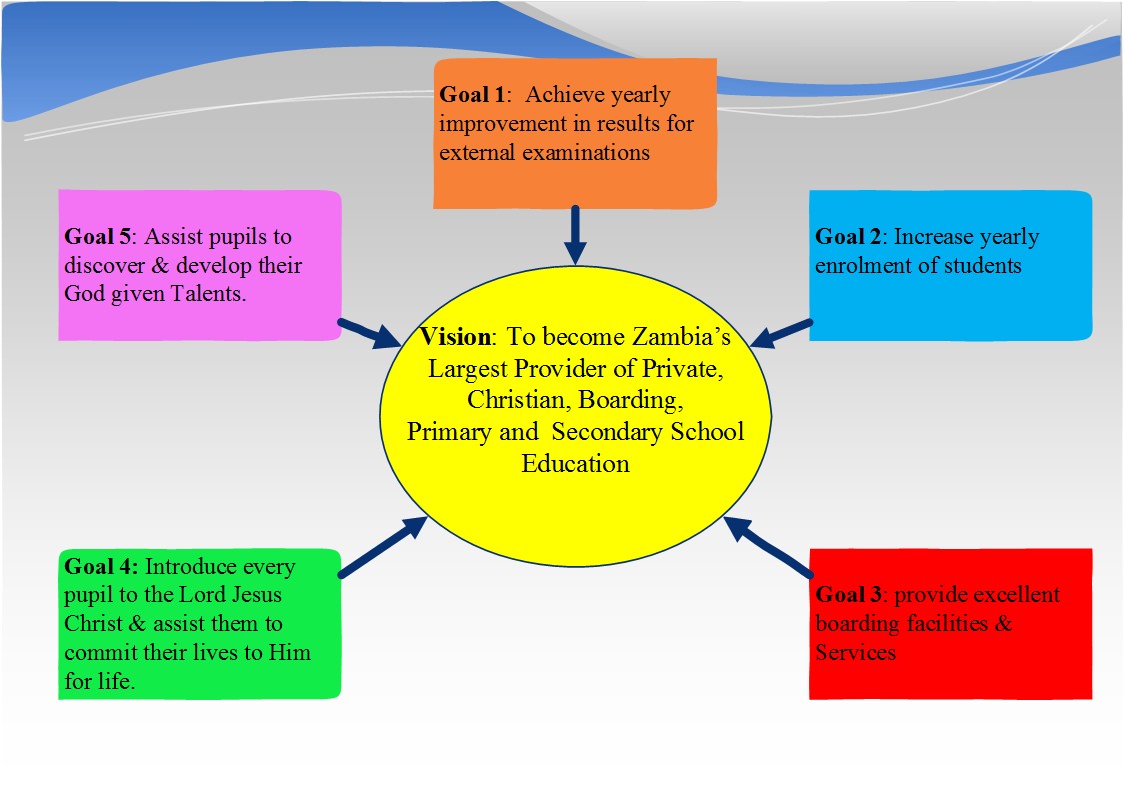VISION, MISSION AND SCHOOL POLICY

School Vision
Chalo Trust School was established in January 2004. Our core business is to offer world class primary and secondary education based on Christian values and practices to the children between the ages of 3 and 18 years. Our long term vision at CTS is to become Zambia’s largest provider of private Christian boarding primary and secondary education and other related foundational courses to children between the ages of 4 and 18 years and to build a highly visible school offering high quality foundational and secondary education products and services based on Christian values and practices in the education sector both in Zambia and the Southern African region.
School Mission
Our mission is to create an environment of order, truth, caring, and concern where the students of diverse economic and cultural backgrounds learn to live together and begin the habit of life long learning and personal and spiritual developmentOur strength lies in our commitment to our Christian values and traditions, intellectual growth, a strong work ethic, sustainable environment in harmony with nature, and the worth of the individual, and the value of community. Ultimately, our main goal is sending well baked, self-disciplined children into society, who have an understanding of Christian values and hard work.
Within our school, there is an attitude of inclusion and tolerance toward other religions, as opposed to exclusion and conformance to Christianity. Students with other religious beliefs are more than welcome to Chalo Trust School and are encouraged to share their faith so others can garner a better understanding of religion across the world. Exposure to other beliefs will introduce students to the common themes present in all religions, as well as the differences that make religious faiths unique. Religious freedom is as important to religious education as intellectual freedom is to academic growth. At Chalo Schools we emphasize a fostering of the Christian faith; what the individual student chooses to believe is a private matter.
In order to fulfil its Mission, Chalo Trust Schools aims to achieve the following objectives:
- offer a coherent and integrated curriculum that prepares students for higher education and entrance into college or university
- offer a curriculum which is appropriate and relevant, whereby the students are actively engaged in the learning process through discussion, practical work, enquiry and investigation
- recognize and develop the potential of individual student and staff of the school community
- provide a safe, stimulating and friendly, challenging learning environment
- provide equal opportunities for the further development of individual talents and interests of both children and teachers.
- achieve excellent social behaviour and moral standards through self-discipline, supportive relationships, along with a sense of respect and responsibility based on strong Christian values and practices
- establish a Christian school that will be a means, through the training of children and contact with parents, of Christian witness into the Zambian community at large and the families of the students in particular.
- establish a school that will become a landmark for Christ and for training of future leaders in all sections of the Zambian community including politics, professional sectors, community and the church.
- foster links with the wider community and an active concern for the less fortunate
School Policy
CTS Policies
Policies are the backbone of the school. They guide and determine every facet of the school: ranging from simple things like what time schools will start, to more complex aspects of the school like what examinations the school will write or what external activities the school should take part in.The school has several different policy documents, and implementation and monitoring frameworks to ensure that these policies are carried out by its' stakeholders and that they are carried out diligently and in a timely manner. A summary of these policies can be found here 2017 Policy Document.
